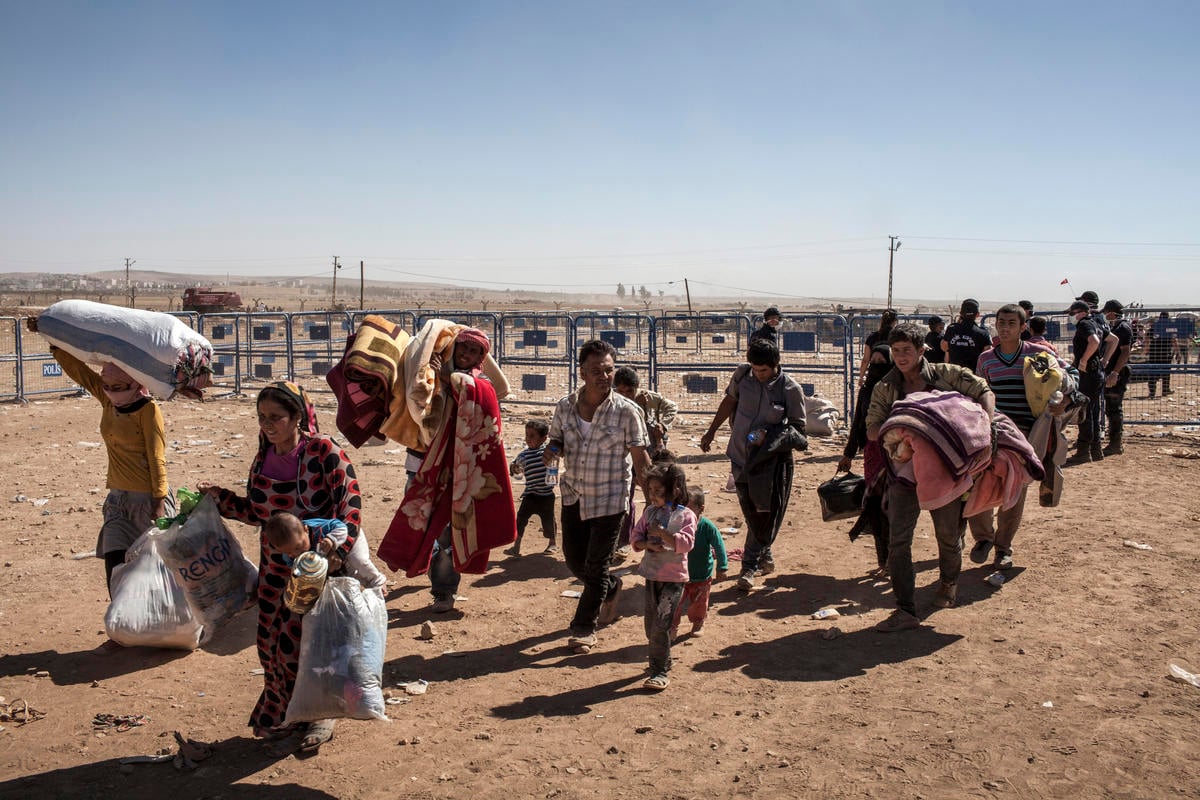UNHCR marks 50th anniversary of U.N. Refugee Convention
UNHCR marks 50th anniversary of U.N. Refugee Convention
GENEVA - The main global treaty for the protection of refugees - the U.N. Convention Relating to the Status of Refugees - marks its 50th anniversary Saturday amid concerns that some of its key provisions are being questioned and even openly flouted by a growing number of states.
The Refugee Convention, which was formally adopted on 28 July 1951, forms the foundation of the modern international legal system designed to protect people who have to flee their countries because of persecution or conflict. It is widely credited with saving countless lives and ensuring a means of escape for people facing imprisonment, torture, execution and other human rights abuses for reasons such as their political or religious beliefs, or membership in a particular ethnic or social group.
The Convention provides a universal definition of who exactly qualifies as a refugee. This definition has proved sufficiently flexible to encompass new types of refugees as they have emerged over the years. The Convention also established a framework of basic refugee rights - for example, the right to identity papers, access to courts and education - without which their lives in asylum countries would be at best precarious and at worst untenable.
In recent months, however, the continuing validity of the 1951 Convention has been publicly questioned in some quarters. This has alarmed UN officials and aid agencies involved with refugees who feel that politics are being played at the expense of the Convention and, therefore, of the refugees it protects.
The reasons behind these attacks on the Convention appear to be linked primarily to the rising number of asylum-seekers, the increase in people-smuggling networks, the perception that the majority of asylum-seekers are "bogus," and the high costs involved in maintaining asylum systems.
"These concerns are understandable, but the critique of the Convention tends to ignore some vital basic factors," said UN High Commissioner for Refugees Ruud Lubbers. "Firstly, the main reason the numbers soared was that there were three major wars in Europe during the 1990s, in addition to numerous other conflicts around the world.
"Secondly, the whole point of the Convention is precisely to make the distinction between those who need the international protection that official refugee status affords, and those who do not. Therefore, it is only to be expected that a certain proportion fail to make the grade. That doesn't mean there's anything wrong with the Convention. Quite the contrary, in fact."
The Convention has also been wrongly blamed for a collective failure to manage the soaring numbers of would-be economic migrants.
"The Convention was never intended to sort out all the world's migration problems," said Erika Feller, UNHCR's Director of International Protection. "The trouble is, with virtually no other migration path open from poor countries to rich ones, the Convention has been subjected to pressures which should be catered for by alternative migration management tools."
On the cost of managing asylum-systems, Lubbers said the increased number of asylum-seekers was only part of the story. "Some states detain every single asylum-seeker entering the country without proper documentation," he said. "This is an extremely expensive way of dealing with asylum-seekers, as well as inhumane and, arguably, quite at odds with Article 31 of the Convention."
Also, Lubbers said, some countries' asylum systems are inefficient, sometimes taking years to reach a decision. "This means not only considerable extra costs in terms of social benefits, but it also makes such countries attractive to economic migrants, stimulating a vicious circle of increased numbers, higher costs, slower decisions," he said.
The most worrying trend is the growing number of states violating Article 33 of the Convention, which says, "No contracting state shall expel or return a refugee in any manner whatsoever to the frontiers of territories where his life or freedom would be threatened . . ."
"This, I find really reprehensible," said Lubbers. "If refugees are sent straight back to danger - or are prevented from leaving their countries in the first place - then all the other measures designed to protect and assist them count for nothing. Under international law this should not happen, and blatantly ignoring international law is a dangerous path to tread."
UNHCR is paying special attention to the problem this year, analysing the extent of the practice in recent years in terms of the number of countries involved and the number of people affected.
Denmark was the first state to ratify the 1951 Convention. Fifty years on, 140 states (almost three-quarters of the world's nations) are party to the Convention and/or its 1967 Protocol. The 141st - Belarus - is about to complete the ratification process. Of the signatories, only seven have not ratified both the Convention and Protocol.
UNHCR has launched a major drive in recent years to broaden international ownership of the 1951 Convention. Once Belarus finishes the formalities, it will become the 12th of the 15 successor states of the former Soviet Union to sign up, in addition to all five nations that used to comprise Yugoslavia and all the Central European countries that used to be part of the Soviet bloc.
But there are still parts of the world - most notably South and South-East Asia and the Middle East - where the majority of states have so far resisted ratifying the Convention.








